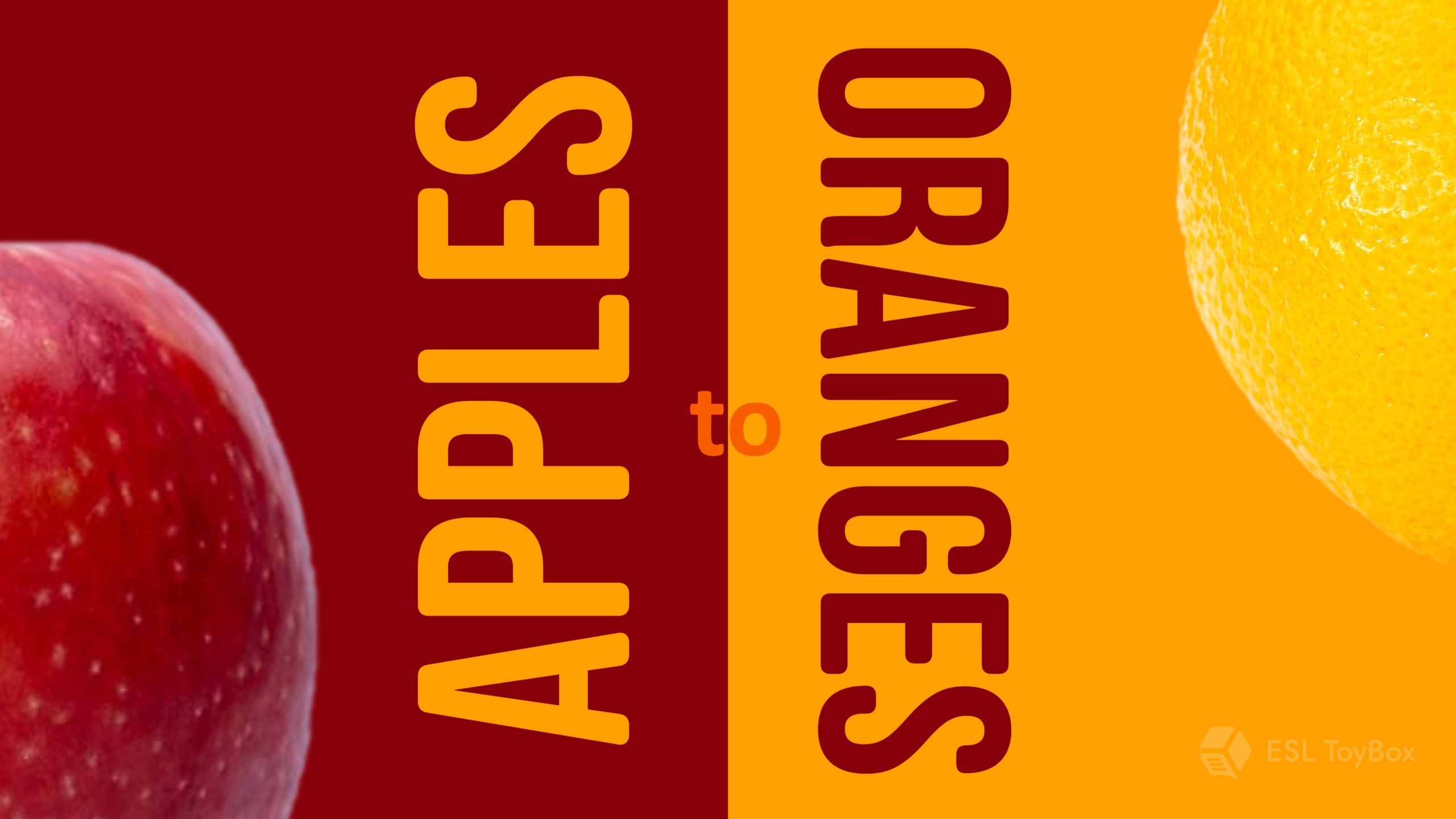Apples to Oranges
I learned a new Korean word today, 짝짝이. It means mismatched. It refers to a pair of items that are different sizes, shapes, or just don’t go together well. I was telling someone about my legs and how they are healing. My injured leg’s muscle is still smaller than the healthy leg. It is growing well, but it still has a long way to catch up with the other leg. I notice the difference the most when I flex the muscle and then push it. The inured leg is MUCH softer. They are like apples and oranges.
So, I wanted to take a look at a similar phrase in English today. Apples to oranges is the first thing that came to mind. The phrase is used to describe two things that are so different, you can’t even compare them.
Example: You can’t say that both Beyonce and Florence Foster Jenkins are talented singers. You’re comparing apples to oranges!
Apples to Apples
I always thought that this phrase developed from another phrase: apples to apples. Apples to apples means that you are trying to compare two things that are nearly identical. However, it seems the opposite might be true. Apples to apples has only been around since the 1990s and didn’t become popular until the board game (of the same name) became popular in the early 2000s. By the way, the board game is one of the best ESL games. I recommend “Apples to Apples Big Picture.” Apples to oranges has been around since 1889. This means that apples to apples came after apples to oranges.
Apples to oranges actually comes from a much older phrase: “apples to oysters” (1670). This makes more sense to me because it would be ridiculous to compare apples and oysters; they’re so different. But there are many similarities between apples and oranges: shape, fruit, size, sweet, etc. The Smithsonian wrote an article comparing apples and oranges back in 2010.
Other languages
It is also interesting to look at how other languages compare things. In many other languages, the phrase is comparing apples to pears. Portuguese shows the difference by using oranges and bananas. Serbians compare grandmothers and toads. Romanians take that one step farther and compare grandmothers to machine guns! They also have phrases comparing cows to longjohns, and gypsys to marker pens. The Welsh say that some things are as different as honey and butter. Russians compare warm and soft while the Chinese say that you can’t mate horses and cattle. However, you will want to be careful in Columbia because they say it is like confusing shit with ointment. I wouldn’t want to make that mistake!
See Also: Adding insult to injury, Gypsy, Agree to Disagree, It’s neither here nor there, How many apples, Venn Diagrams
For more English phrases and quotes, follow me on Facebook:
https://www.facebook.com/ESL-ToyBox-112152010890485
Reference:
https://www.theidioms.com/apples-to-oranges/
https://www.phrases.org.uk/bulletin_board/57/messages/543.html
https://lilydailyenglish.tistory.com/69
https://en.wikipedia.org/wiki/Apples_and_oranges
https://poemanalysis.com/idiom/apples-to-oranges/
https://www.smithsonianmag.com/science-nature/comparing-apples-and-oranges-37838381/


